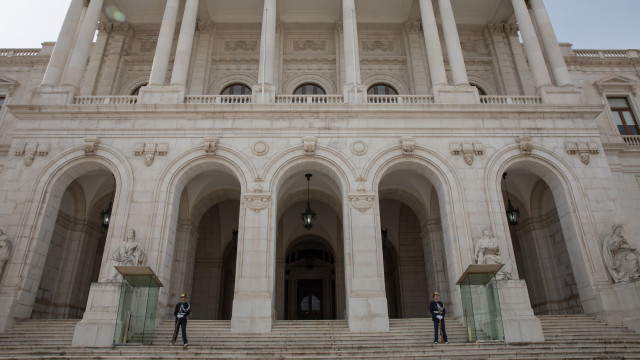Tonight, at the Festas de Abril in Lisbon, the show “Abril em flor,” conceived by Vitorino, will feature “songs of hope and resistance to dictatorship” by artists such as Mafalda Veiga, Márcia, Lus Trigacheiro, and Zeca Medeiros.
They will be joined by the Cantadeiras e Cantadores do Redondo, as well as Aldina Duarte, Capicua, Carlo, and Tim, who will perform poems by Manuel Alegre, Sophia de Mello Breyner Andresen, Jonas Negalha, and Ruy Belo, with video projections around the stage at Praça do Comércio, according to a program released by Lisbon City Hall.
During the performance, which is scheduled to begin at 10 p.m., comic book author, illustrator, and set designer António Jorge Goncalves will create, from photographs, a universe in live drawing that will be projected on stage, accompanied by music by Sérgio Costa, Rui Alves, Carlos Salomé, Paulo Jorge, and Guilherme Duque, under the direction of Tomás Pimentel.
Today and tomorrow at the Marvila Library, the Teatro do Vestido will present “Revolution Junkies – Foreigners in the Portuguese Revolution” at 9:00 PM. This is a Joana Craveiro-directed and -written production.
“Revolution Junkies” discusses the attraction that the April Revolution exerted on citizens of various countries, both for their convictions and for the unprecedented character that mobilized the international press: a character that, four decades later, on the 40th anniversary of the 25th of April, prompted NBC News to report on “the ‘coolest’ coup in the world” (“The world’s coolest coup”).
On Tuesday, 49 years after the fall of the dictatorship, the Aljube Museum will open its doors, and visitors will be able to view temporary exhibitions such as “The artist took to the streets” with photographs by Ana Hatherly from the era, and “The people are on the streets – Squares and Squares of the Revolutions” at the nearby Roman Theater of Lisbon.
In the Old Boa Hora Courthouse, the exhibition “Signs of Liberty – Iconography of Democracy in the Ephemera Archive” is on display until May 28. It features iconographic material selected from the José Pacheco Pereira’s Ephemera Archive.
The April Festivities in Lisbon, an initiative of the municipal company for the Management of Cultural Equipment and Animation (EGEAC), bring together approximately fifty activities, in various municipal facilities, as well as through the council’s social networks, including music performances, exhibitions, theater, cinema, discussions, and readings, among other cultural proposals.
As part of the 2504 Festival, which runs until Tuesday and is co-produced by the Commemorative Commission of the 50th Anniversary of the 25th of April and Benfica Parish Council, the initiative “#NoPodias” is taking place, which “appeals to young people not to take freedom for granted, challenging them to choose one of several prohibitions imposed on the Portuguese during the dictatorship [1926-1974] and to share this information and their reflections on digital platforms.”
This action has its final conversation today, under the theme “#YouCouldn’t Be European”, moderated by journalist Joo Francisco Gomes, beginning at 6:30pm, as part of a series of meetings in which they also discussed the impossibility of voting (“#YouCouldn’t Vote”) and speaking freely (“#YouCouldn’t Express Yourself”).
The final talk of this cycle takes place exactly 49 years after the end of the dictatorship, on the eve of April 25, 1974, the day when censorship ended, the political police disbanded, and the way was opened for everyone to vote, express themselves, disagree, meet, and travel freely, as the initiative’s page shows, the way for all to have access to education, health, and social security.
Free participation in the “#YouCouldn’t” initiative is available at https://www.50anos25abril.pt/nao-podias, as is information on what was prohibited. “Fifty years ago, ‘#youcouldn’t’ be reading this text,” the opening page states. “It would have been censored.”








